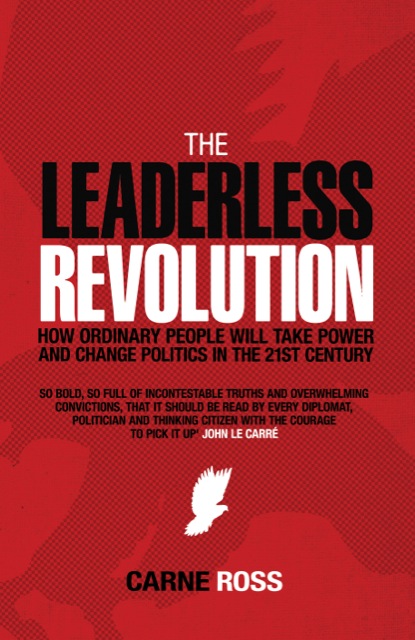Capital: My latest column in The Guardian

My latest column in The Guardian, in the series “Power and Nations”:
Basel III: business as usual for bankers
Successful lobbying – or blackmailing – by banks means that financial regulation to prevent another crash is too weak to work
Middle East: All Process, No Progress – my “Power & Nations” column in The Guardian

This is my latest weekly column in “The Guardian” online, in the series “Power and Nations”.
Whenever an international problem starts being called a “process”, one should immediately become suspicious that the problem itself will not be solved. Indeed, the naming of a problem as a “process” is a way to obscure lack of progress with endless anaesthetising conferences, meetings and statesmanlike speeches.
What the UK Foreign Office can learn from the State Department
The following article appeared in Civil Service World:
The Foreign Office has lost its way, says former diplomat Carne Ross, and could learn much from the US State Department
Let’s call Russia’s bluff on Syria – inaugural piece for a series “Power and Nations” in The Guardian online

This article appeared in The Guardian online on 23 May 2011, the first article in a series called “Power and Nations”
In contrast to action on Libya, the UN has been tardy and timid over Syria’s crackdown – thanks to the threat of a Russian veto
Three Extraordinary Stories You’ve Barely Heard of
While our attention has been on Libya, the aftermath of bin Laden’s death and a hundred other news stories, there seem to me to have been three other stories playing out that are of considerable significance. They are not headline grabbing, but that does not diminish their importance. They are long-term stories of gradual but dramatic change:
Marx on the alienation of work: When human becomes animal

I had not seen this passage until I read it in “Lapham’s Quarterly”, an excellent new journal of history and ideas. It is taken from Karl Marx’s Economic and Philosophic Manuscripts (1884). According to Lapham’s Quarterly, this text was not published until 1959. One could hardly find a more eloquent description of the fundamental alienation wrought by work. Work is not spontaneous activity, but belongs to another; it comprises a loss of self.
“The Leaderless Revolution”- coming this September…

Below is the summary of my new book, “The Leaderless Revolution”, to be published by Simon & Schuster (UK) in September, 2011. And before it, a very generous quote about the book from
The Necessity of Leaderless Revolutions
It is now a commonplace to observe that recent uprisings in Egypt, Tunisia, Libya and elsewhere in the Arab world were and are leaderless. In all these cases, no leadership figures have emerged, neither charismatic individuals nor vanguard organisations. These revolutions embody a degree of organisation, including on social media, but not very much; these movements are not top-down, driven by the choices of a small group or individual, or inspired by an ideological rhetoric except the common cry: enough of the old order!
Crow’s account of the battle (from “Crow”, Ted Hughes)

There was this terrific battle.
The noise was as much
As the limits of possible noise could take.
There were screams higher groans deeper
Than any ear could hold.
Many eardrums burst and some walls
Collapsed to escape the noise.
Everything struggled on its way
Through this tearing deafness
As through a torrent in a dark cave.
The cartridges were banging off, as planned,
The fingers were keeping things going
According to excitement and orders.
The unhurt eyes were full of deadliness.
The bullets pursued their courses
Libya – Rough Guide to the new UN Security Council resolution (1973)
